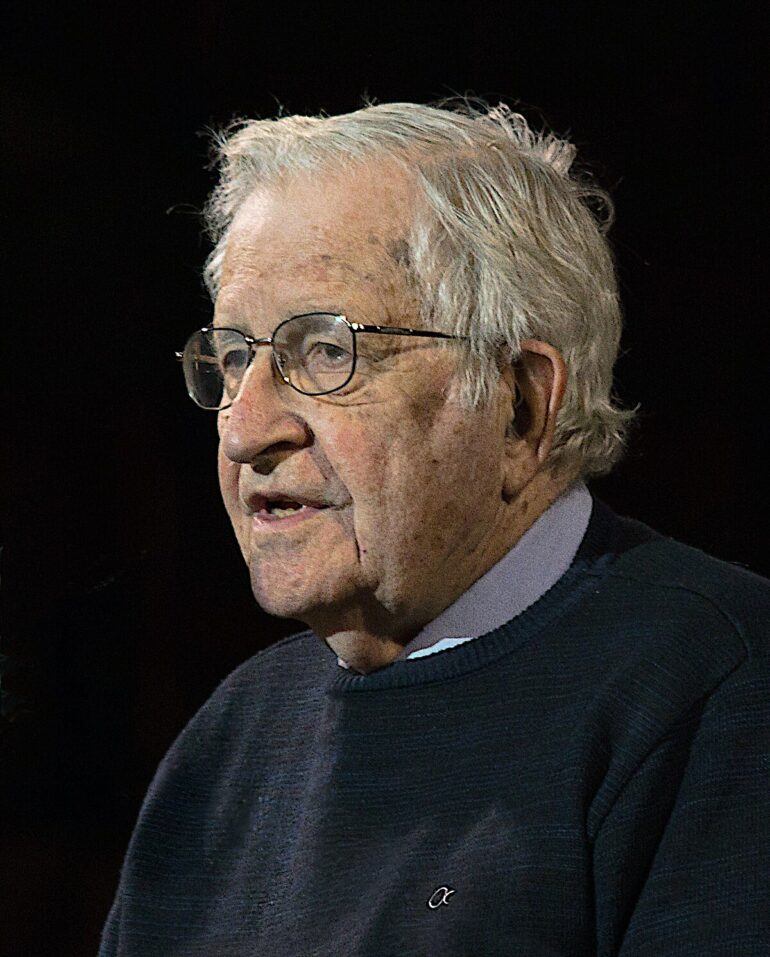Noam Chomsky, one of the world’s most famous and respected intellectuals, will be 96 years old on Dec. 7, 2024. For more than half a century, multitudes of people have read his works in a variety of languages, and many people have relied on his commentaries and interviews for insights about intellectual debates and current events.
Chomsky suffered a stroke in June 2023 that has severely limited his movement, impaired his speech and impeded his ability to travel. His birthday provides an occasion to consider the tremendous corpus of works that he created over the years and to reflect on the many ways that his texts and recordings still critically engage with contemporary discussions all across disciplines and realms.
Chomsky’s vast body of work includes scientific research focused on language, human nature and the mind, and political writings about U.S. imperialism, Israel and Palestine, Central America, the Vietnam War, coercive institutions, the media and the many ways in which people’s needs are subjugated in the interest of profit and control.
As a scholar of humanities and law, I’ve engaged with Chomsky’s work from an array of perspectives and authored a biography called “Noam Chomsky: A Life of Dissent” and a book on Chomsky’s influence called “The Chomsky Effect: A Radical Works Beyond the Ivory Tower.” One important theme in his broad corpus is his lifelong fascination with human creativity, which helps explain his vociferous attacks on those who seek to keep the rabble in line.
Early days
Avram Noam Chomsky was born on Dec. 7, 1928, in Philadelphia. He and his younger brother, David Chomsky, were raised in a lively household by Elsie Simonofsky and William (Zev) Chomsky, progressive educators who were deeply immersed in wide-ranging Jewish and Zionist cultural activities.
Chomsky often dates his own interest in teaching and learning to his close readings of Hebrew works with his parents and to the lively educational experiences he enjoyed at the Oak Lane County Day School, an experimental school that subscribed to John Dewey’s approach to immersive learning and promoted individual creativity over competition with other students.
A precocious learner, Chomsky at 12 years old read the proofs for his father’s book about a 13th-century Hebrew grammarian named David Kimhi. It was an auspicious beginning to a life immersed in philology, philosophy and the study of language and the mind. From very early on, he sought to understand innate human propensities for freedom, dignity and creativity, which inspired his interest in fostering those properties of human nature.
While Chomsky’s parents were what he called normal Roosevelt Democrats, he was drawn to more radical approaches to society and to the promotion of noncoercive social structures. At age 10, he read about the Spanish Civil War, which inspired him to write an editorial about the fall of Barcelona for his school’s newspaper. This was an…



